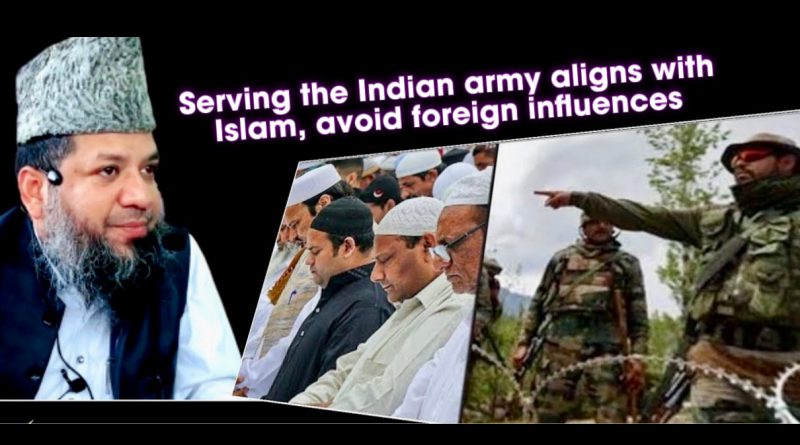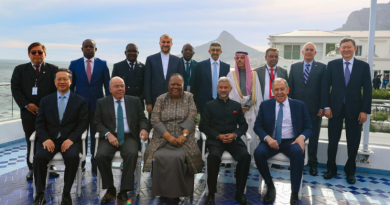Salafi Scholar: Serving Indian Army Is Not Un-Islamic, Don’t Fall for Foreign Agendas
New Delhi — In a bold rebuttal to rising misinformation, prominent Salafi scholar Shaykh Mohammed Rahmani, chief of the Abul Kalam Azad Islamic Awakening Centre in New Delhi, has addressed a controversial narrative alleging that Muslim participation in the Indian Army contradicts Islamic principle of ‘Al-Wala Wal-Bara’ — ‘Love and Hate for the Sake of God’.
In a widely circulated video, Shaykh Rahmani warns the Muslim youth not to fall victim to what he calls a “foreign conspiracy” aimed at sowing religious confusion. Speaking in Urdu with restrained passion, he said, “The propaganda is coming from across the border — in English — camouflaged under Islamic scholarship to mislead Indian Muslims.”
Shaykh Rahmani’s comments come amid a social media campaign reportedly originating from Pakistan, which discourages Muslims in India from joining the armed forces, branding it un-Islamic.
“They could not establish Shariah in their own land,” he said, referring to Pakistan, “so now they are targeting Indian Muslims, creating doubt over something that has no basis in Islamic creed.”
The senior Salafi scholar made it clear that enlisting in the Indian Army is a personal and civic decision, not a theological dilemma. “This is not an issue of Islam versus Kufr. Joining the army does not turn one into a disbeliever,” he asserted. “It is about protecting the nation, just as any other country’s military defends its own borders.”
Shaykh Rahmani emphasized that the Indian Army is a national institution and not a religious one, and that its role should not be misrepresented through sectarian lenses. “There is a security matter between two countries — not between two faiths. Don’t confuse patriotism with blasphemy,” he cautioned.
This video has gained traction amid ongoing discussions about the role of Muslims in India’s armed forces. Many within the community serve with distinction in the military, and the government has repeatedly highlighted its secular credentials in national institutions.
However, voices that attempt to religiously polarize such national duties, whether domestic or foreign, raise concerns about the manipulation of faith for political or ideological gain.
Security analysts and interfaith scholars have also weighed in, warning that conflating national duty with religious betrayal is not only misleading but potentially destabilizing. “This narrative isn’t just misguided — it’s dangerous,” said one Delhi-based interfaith researcher. “It isolates Indian Muslims from civic responsibility and plays straight into divisive hands.”
The Abul Kalam Azad Islamic Awakening Centre, under Shaykh Rahmani’s leadership, has been vocal in countering extremism and religious misinterpretation, especially among urban Muslim youth. His recent statements are seen as part of a broader effort to reclaim religious narratives from geopolitical agendas.
As India navigates complex domestic and regional dynamics, scholars like Shaykh Rahmani are emerging as vital voices defending both Islamic integrity and national unity.



